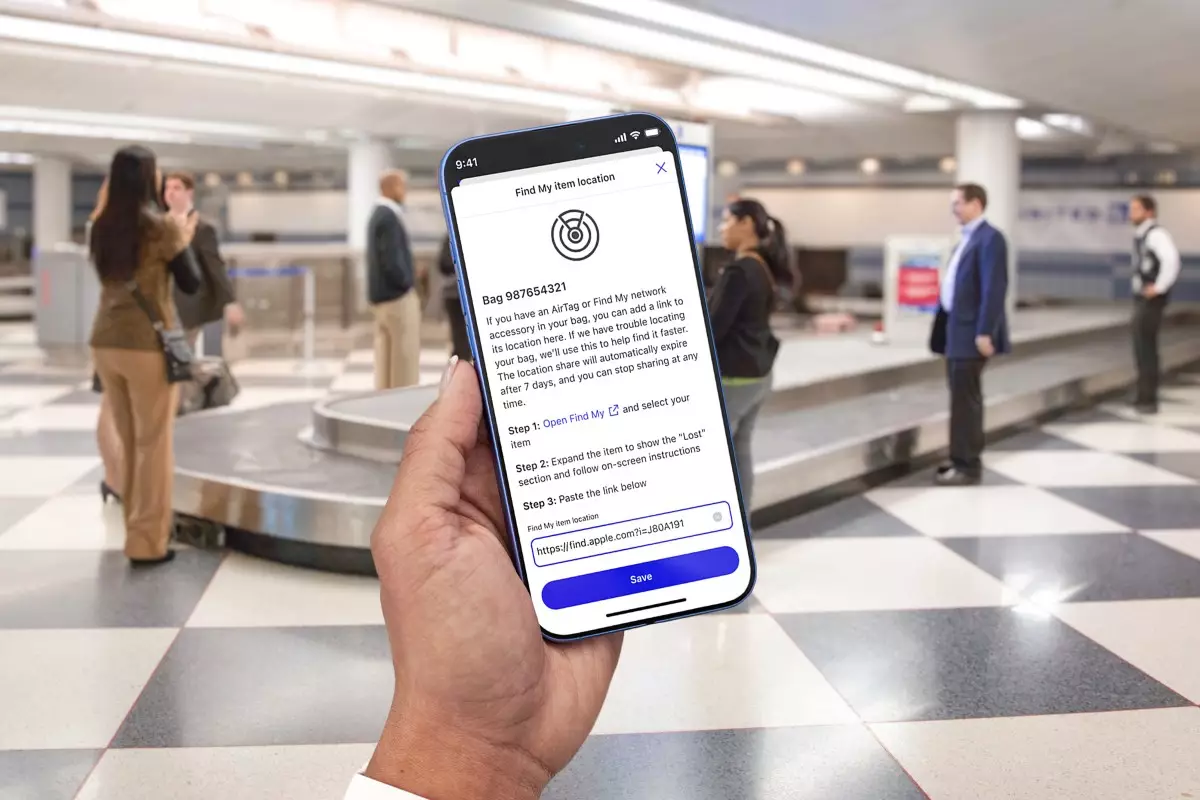In an increasingly digital world, where precision and convenience reign supreme, the latest integration of Apple’s AirTag functionality with airline customer service presents a timely evolution in travel technology. As holiday travelers prepare for their journeys, the anxiety surrounding lost luggage experiences is all too familiar. Previously, a reliance on traditional tracking methods and the challenging dynamics of busy airport systems often left customers frustrated. However, Apple’s innovative approach through its “Find My Share Item Location” feature is set to revolutionize how lost belongings are managed during air travel.
United Airlines and Air Canada have become the pioneering partners in this initiative, allowing travelers equipped with AirTags to share precise location information of their lost items directly with airline representatives. This integration, part of Apple’s iOS 18.2 update, aims to simplify the cumbersome process of luggage recovery. By establishing a link between AirTags and airline customer service systems, travelers can now provide real-time data about their lost items, potentially speeding up recovery times significantly.
The skyrocketing popularity of AirTags in conjunction with travel highlights the growing reliance on personal tracking technology. While users have turned to these devices for peace of mind regarding their luggage, real-life experiences illustrate the limitations of airline responses to lost items. Anecdotes from travelers, such as an incident where a bag was misplaced despite being tracked within the airport, serve as reminders of the systemic issues present in current logistical operations. By actively incorporating AirTag location data into their systems, United and Air Canada can enhance accuracy and reliability in baggage tracking, foreshadowing a more efficient airline customer service protocol.
The benefits extend beyond mere convenience; they usher in an era of accountability and transparency between airlines and their customers. With the AirTag’s tracking function recognized officially within airline operations, passengers can feel empowered in their journey. Apple emphasizes the focus on security and privacy within the “Find My” ecosystem. The generated location links are designed to protect user information, remaining accessible only to the specific airline for up to seven days, after which they expire. This proactive security measure reassures customers that their data is safeguarded throughout the experience.
Moreover, the end-to-end encryption of the location data serves to further solidify consumer trust in the technology being employed. By ensuring that not even accessory manufacturers have access to sensitive information, Apple demonstrates a commitment to user privacy that is critical in today’s data-sensitive landscape. This aspect addresses growing concerns regarding data tracking and user privacy, providing a systemic enhancement of customer relations in the aviation industry.
As United and Air Canada take the lead, it is anticipated that other airlines will rapidly adopt this feature, with Apple reporting draws from nearly twenty other international carriers. This will likely elevate industry standards for luggage tracking and management significantly. Travelers can expect a more standardized approach to lost luggage issues across various airline systems, allowing for a streamlined and cohesive recovery experience irrespective of the airline they choose.
The intersection of technology and travel fosters an environment where issues such as misplaced luggage could become a rare affront of the past. With airlines grappling with operational complexities inherent to handling millions of bags annually, the collaboration with Apple’s technology through AirTags might well be the turning point that heralds an era of efficiency and satisfaction. As technology continues to adapt to the demands of modern travelers, the interplay between consumer products like AirTags and service providers like airlines presents an exciting glimpse into the future of travel logistics.
As the holiday season approaches, the integration of Apple’s AirTag technology with leading airlines stands promise not only for improved customer experiences but also for a transformative shift in how the industry approaches lost luggage issues. This invaluable partnership could prove to be a defining moment in reshaping customer expectations and operational effectiveness within aviation circles.

